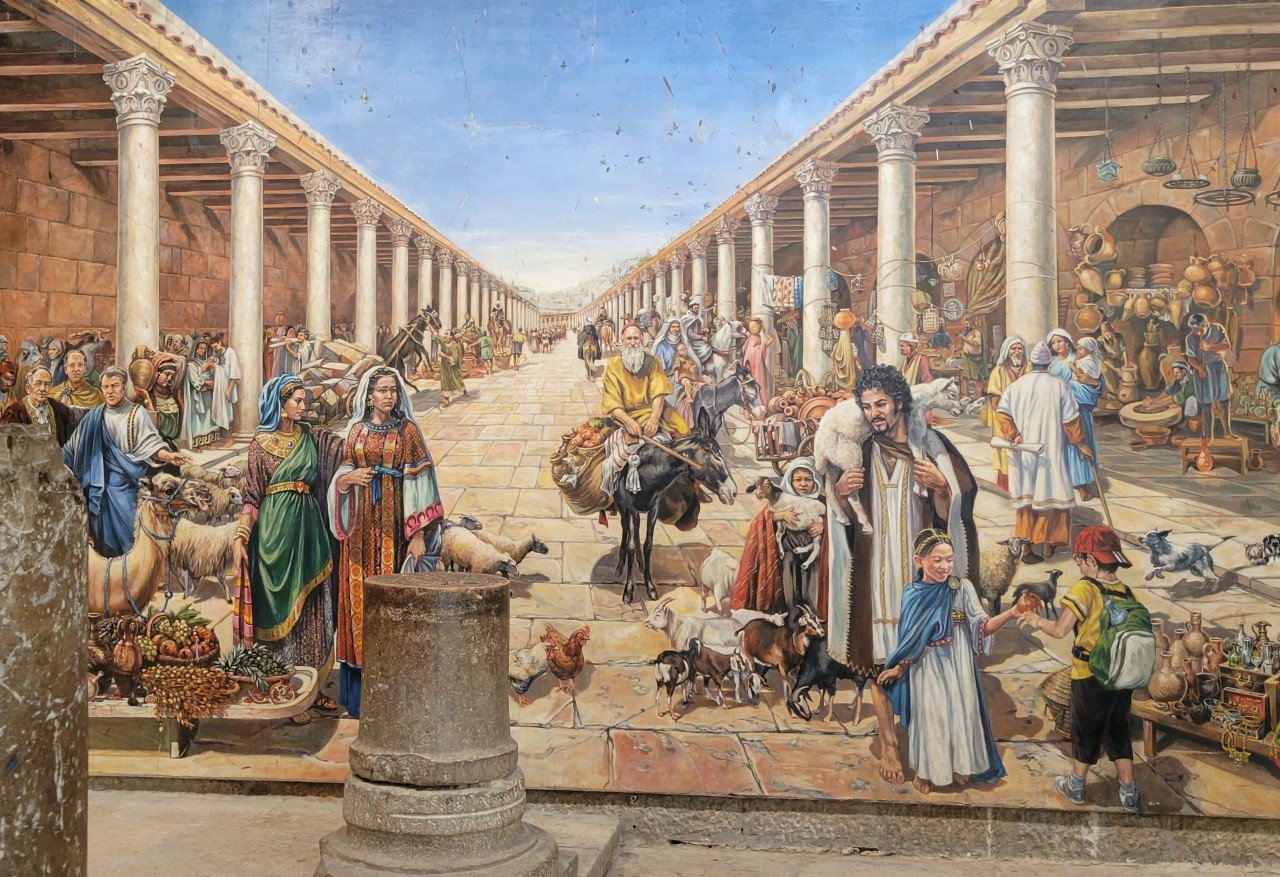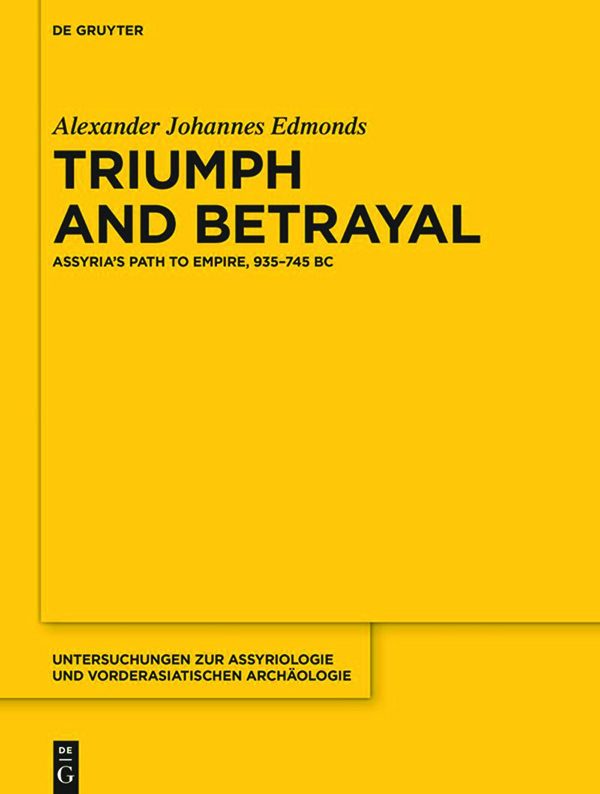What does Paul mean when he says that “All Israel will be saved” in Romans 11:26? Does this refer to a restoration of the nation of Israel, the salvation of the church (i.e., “spiritual Israel”), or something else?
In this episode of What in the Word?, Richard Lucas joins Kirk E. Miller to explore the various interpretations of this passage, weigh their strengths and weaknesses, and discuss how this passage fits into the broader biblical narrative, helping us understand how to apply and preach it today.
Follow the show on YouTube, Spotify, Apple Podcasts, and more.
Special offers
A Free Book Just for You
Logos has given away over 5 million free books, empowering Christians globally to study deeply. Get a shiny, new free book every month!
Exclusive Lexham Press Tough Texts Bundle
Have more questions about the Bible? Get the 10-volume Lexham Press Tough Texts Bundle designed exclusively for fans of What in the Word?
The Future of Bible Study is Here
Unlock in-depth study of God’s Word, plus exclusive discounts, free books, and more starting as low as $9.99/month—only with the new Logos.
Connect with us
Ready to increase biblical literacy? Like and share. To go the extra mile, leave us a review on your preferred platform.
Subscribe to get future episodes. (Bonus: We’ll send you a discount to use on your first purchase.)
Thanks for subscribing to Word by Word!
Use code WORDBYWORD to save 10% on your first order.
WORDBYWORD Copy code
Episode guest: Richard Lucas
Richard is pastor of teaching and reaching at First Baptist Church Jacksonville, FL, as well as the director of the First Baptist Center for Ministry Training. He is co-editor of Covenantal and Dispensational Theologies: Four Views on the Continuity of Scripture in the Spectrum series (IVP, 2022), a contributor to Progressive Covenantalism: Charting a Course between Dispensational and Covenant Theologies (B&H, 2016), and a writer at Christ Over All.
Episode synopsis
What’s the debate?
Kirk E. Miller introduces the main question: What does Paul mean in Romans 11:26 when he claims that “all Israel will be saved”? The primary debate revolves around who “all Israel” refers to and the timing of this salvation.
Richard Lucas identifies four main interpretive options, detailing their strengths and weaknesses. Does “all Israel” refer to the church (i.e., “spiritual Israel”), an elect remnant of ethnic Jews across redemptive history, a future mass conversion of ethnic Jews at the end of history, or a national restoration of Israel?
The context of Romans 9–11
Kirk and Richard begin by outlining the broader context of Romans 9–11, emphasizing how these chapters form a cohesive argument about the fate of Israel and the inclusion of the Gentiles in salvation history.
The primary question Paul deals with in Romans 9–11 is: Has God’s promises to Israel failed (see Rom 9:6)? If nothing can separate us from God’s sovereign, saving love (Rom 8:28–39), than why do so many Jews in Paul’s day—and ours—reject the gospel? Romans 9–11 presents a series of multifaceted answers to this question, culminating in Romans 11:25–32.
1. The church—Jew and Gentile—as “all Israel”
The first view of this passage maintains that “all Israel” refers to the church, which is believing Jews and Gentiles together (Eph 2:11–22). Thus, this view considers the present church age as the fulfillment of Romans 11:26, “and thus”—or, “in this way”—“all Israel will be saved.”
Richard and Kirk mention passages like Galatians 6:16 and 1 Peter 2:9–10 where Paul describes the church, including Gentile believers, as the spiritual (or eschatological) Israel. Thus, this view would align with the idea that true Jews are those who are spiritually circumcised (Rom 2:28–29; cf. Phil 3:3) and share the faith of Abraham, heirs of the covenant promises (Gal 3:27; cf. 3:14; Rom 4:9–17).
Against this view, the immediate context of Romans 9–11 distinguishes ethnic Jews from Gentiles. Also, this interpretation might inadvertently support Gentile arrogance towards Jews, which Paul explicitly cautions against just before (Rom 11:11–24).
2. Elect Jews across time
A second view argues that “all Israel” refers to all the elect ethnic Jews who are saved throughout the church age, up to the second coming of Christ. According to this view, Romans 11:25–26 describes Israel’s rejection, leading to Gentile salvation during this age, which in turn also stirs jealousy among Jews, prompting their salvation across this age.
In support of this view, adherents points to Romans 9:6–8 and 11:1–10, passages which highlight this concept of a remnant chosen by grace. However, one might argue that this view essentially asserts what is self-evident—that God’s elect are saved. It also arguably overlooks details in the text which anticipate a future mass conversion of the Jews (e.g., “life from the dead”; Rom 11:15).
3. A large conversion of Jews at the end
This third view understands Romans 11:26 as predicting a future eschatological event where a significant number of ethnic Jews will be converted before or at the second coming of Christ.
In favor of this view, verses like Romans 11:12 (“their fullness” or “full inclusion”) and 11:15 (a shift from “their rejection” to “their acceptance”), and the olive tree analogy in Romans 11:23–24 in which “natural branches” (Jews) are re-grafted, hint toward a significant future event involving the majority of Jews. Further, the phrase “life from the dead” in Romans 11:15 is interpreted as referring to general resurrection following this salvation of Israel, thus making it an eschatological event, not merely the salvation of Jews across the church age.
4. Restoration of Israel as a nation-state
This view, primarily held by dispensationalists, asserts that “all Israel” denotes the nation of Israel, which will be restored to a distinct national identity in the future, coinciding with or leading into a millennial kingdom. This view emphasizes literal fulfillment of Old Testament prophecies about Israel’s national restoration. It proposes a sophisticated sequence where Israel’s national revival triggers further Gentile blessings during the millennium.
Against this view, critics point out that it requires different meanings for “fullness” in Romans 11:25 and 11:12. Further, it downplays the climactic end of salvation history, emphasizing additional future events beyond the general resurrection.
Comparing & contrasting interpretations
All views, except the dispensationalist one, agree that the church can be viewed as the spiritual Israel. The primary divergence between these four views then revolves around the timing and extent of ethnic Israel’s inclusion (views 1–3) and whether it involves a national restoration distinct from the church (view 4).
Practical significance
Richard shows how the passage focuses on God’s sovereign mercy that extends to both Jews and Gentiles. Paul’s point is that God orchestrates salvation history in such a way as to highlight that salvation depends on him alone, excluding all grounds for human boasting. Glory belongs to God alone. Recognizing God’s mysterious plan encourages humility (“Lest you be wise in your own sight,” Rom 11:25; cf. 11:11–24) and doxology (11:33–36).
Logos values thoughtful and engaging discussions on important biblical topics. However, the views and interpretations presented in this episode are those of the individuals speaking and do not necessarily reflect the official position of Logos. We recognize that Christians may hold different perspectives on this passage, and we welcome diverse engagement and respectful dialogue.
- Lucas, Richard. “How Will ‘All Israel’ Be Saved in Romans 11:26? (Part 1).” Christ Over All, January 24, 2024. https://christoverall.com/article/concise/how-will-all-israel-be-saved-in-romans-1126-part-1/
- Lucas, Richard. “How Will ‘All Israel’ Be Saved in Romans 11:26? (Part 2).” Christ Over All, January 26, 2024. https://christoverall.com/article/concise/how-will-all-israel-be-saved-in-romans-1126-part-2/
Progressive Covenantalism: Charting a Course between Dispensational and Covenantal Theologies
The Letter to the Romans, 2nd ed. (New International Commentary on the New Testament | NICNT)

 1 month ago
51
1 month ago
51













 English (US) ·
English (US) ·